Giriş
In an increasingly interconnected global landscape, the concept of diplomatic jurisdiction has become a cornerstone of international relations, shaping how states interact, resolve disputes, and protect their interests abroad. As the world grapples with evolving challenges—ranging from transnational crime to cyber warfare, climate diplomacy to global pandemics—the legal and political mechanisms that define and limit jurisdiction across borders have taken on unprecedented importance.
At the heart of this framework lies the delicate balance between respecting a state’s sovereign right to govern within its territory and acknowledging the practical realities of global interdependence. This is where diplomatic jurisdiction strategies come into play. These are the formal and informal tools governments use to assert, negotiate, and sometimes strategically relinquish jurisdictional authority in the pursuit of international cooperation, peacekeeping, or economic diplomacy.
Far from being abstract legal theory, these strategies manifest in real-world situations every day: when foreign diplomats are granted immunity from prosecution; when states enter bilateral treaties to manage the presence of foreign military forces; when international organizations are allowed to operate within a country with unique legal privileges; or when jurisdictional conflicts are resolved through diplomatic negotiation rather than legal confrontation.
More than just a function of international law, diplomatic jurisdiction strategies are a critical part of how states navigate an increasingly multipolar world. They influence everything from trade agreements and humanitarian interventions to the settlement of disputes before international courts. In doing so, they help define the rules of engagement in a global order where power is shared, contested, and continuously renegotiated. Understanding these strategies is essential not only for diplomats and policymakers but also for global businesses, legal practitioners, and civil society actors who operate across jurisdictions and engage with international institutions.
Understanding Diplomatic Jurisdiction
Defining Jurisdiction in Diplomacy
Jurisdiction, in the context of diplomacy, refers to a state’s legal authority to govern matters within its territory and, in certain cases, beyond its borders. Diplomatic jurisdiction encompasses the rights and immunities granted to foreign diplomats, the extraterritorial application of a state’s laws, and the mechanisms through which states negotiate jurisdictional boundaries.
The Vienna Convention on Diplomatic Relations
The 1961 Vienna Convention on Diplomatic Relations codifies the principles governing diplomatic relations between states, including the privileges and immunities of diplomatic agents. It establishes that diplomats are generally immune from the jurisdiction of the host state’s courts and administrative authorities, ensuring the smooth conduct of diplomatic missions.NSUWorks+9SlideServe+9Oxford Academic+9Wikipedia
Core Strategies in Diplomatic Jurisdiction
Effectively managing jurisdiction in diplomatic contexts requires a combination of legal instruments, political negotiation, and adherence to international norms. States utilize a variety of strategies to navigate the complexities of diplomatic presence, legal conflicts, and transnational cooperation. The following core strategies represent the primary tools through which nations assert, share, or defer jurisdiction in international relations.
1. Bilateral and Multilateral Agreements
Bilateral and multilateral treaties serve as foundational tools for delineating jurisdictional boundaries between states. These agreements are meticulously negotiated to establish the legal framework governing specific international activities—ranging from diplomatic relations to military deployments and criminal cooperation.
For example, Status of Forces Agreements (SOFAs) are bilateral treaties that define the legal status of foreign military personnel operating within a host country. These agreements clarify issues such as criminal jurisdiction, tax liabilities, and procedures for handling disputes involving service members. The U.S.–Japan SOFA, for instance, has long been a focal point of public debate, especially when American personnel are accused of crimes on Japanese soil, raising questions about jurisdictional fairness and local sovereignty.
Another example is extradition treaties, which outline the conditions under which one state agrees to surrender an individual to another state for prosecution or punishment. Without such agreements, jurisdictional conflicts can arise—particularly when a suspect is a national of the asylum country or when there are concerns about fair trial standards in the requesting state.
In the multilateral context, agreements like the Vienna Convention on Consular Relations and the Rome Statute of the International Criminal Court establish shared norms and mechanisms for handling jurisdiction across borders. These treaties create predictable rules that foster cooperation and reduce the risk of diplomatic friction.
Ultimately, treaties are the most structured and enforceable way to manage jurisdiction between states, allowing for tailored approaches depending on the geopolitical, legal, and cultural context of the parties involved.
2. Diplomatic Immunity and Its Limits
Diplomatic immunity is a time-honored principle enshrined in the Vienna Convention on Diplomatic Relations (1961), granting foreign diplomats and certain embassy staff immunity from the jurisdiction of the host country’s courts and law enforcement agencies. This legal shield allows diplomats to perform their functions without fear of harassment or coercion by the host government.
However, this immunity is not without limitations. It is subject to waiver by the sending state, meaning a diplomat can be held accountable if their own government consents to remove the immunity. This is often invoked in cases involving serious criminal conduct, where failing to lift immunity could cause diplomatic fallout or domestic outrage in the host country.
For example, in 1997, Georgian diplomat Gueorgui Makharadze caused a fatal car accident in Washington, D.C. Although initially shielded by immunity, the Georgian government waived his protections, allowing the United States to prosecute him. He was sentenced to several years in prison—a rare but notable instance of diplomatic accountability.
Furthermore, not all diplomatic personnel enjoy the same level of immunity. While ambassadors typically have full criminal and civil immunity, technical and administrative staff may only have immunity for acts performed in the course of their official duties. As diplomatic missions become more diverse in their roles and personnel, distinguishing between protected and unprotected conduct becomes increasingly critical.
The careful balancing act between upholding diplomatic protections and ensuring justice lies at the heart of modern diplomatic jurisdiction strategies, especially in democratic societies where public scrutiny is intense.
3. Extraterritorial Jurisdiction
Extraterritorial jurisdiction refers to a state’s legal authority to apply its laws outside its territorial boundaries. While traditionally jurisdiction was considered a territorial concept, modern international law increasingly allows for extraterritorial application in certain cases—particularly those involving terrorism, human trafficking, war crimes, or corruption.
For instance, the United States’ Foreign Corrupt Practices Act (FCPA) permits U.S. authorities to investigate and prosecute acts of bribery committed by foreign corporations or individuals, even if the acts occurred entirely abroad, provided there is a minimal nexus to U.S. jurisdiction (e.g., a transaction in U.S. dollars or communication routed through U.S. servers).
Similarly, universal jurisdiction enables states to prosecute egregious crimes—such as genocide or torture—regardless of where they occurred or the nationality of the perpetrators. This principle was famously invoked by İspanya in its attempt to prosecute former Chilean dictator Augusto Pinochet in the late 1990s, and later by Belçika, though such efforts are often controversial and diplomatically sensitive.
While these forms of jurisdiction serve the cause of international justice, they often strain diplomatic relations, particularly when perceived as politically motivated or lacking reciprocity. Asserting extraterritorial jurisdiction without adequate legal foundation or multilateral support can lead to retaliatory measures, including trade restrictions or expulsion of diplomats.
Hence, states must weigh the benefits of pursuing extraterritorial claims against the diplomatic costs they may incur, making this one of the most complex strategies in the jurisdictional toolkit.
4. International Dispute Resolution Mechanisms
In situations where jurisdictional boundaries are disputed or unclear, states frequently turn to international courts and arbitration bodies to resolve conflicts through legal means. These institutions offer a neutral forum for adjudicating disputes while reinforcing international law and promoting peaceful coexistence.
Bu International Court of Justice (ICJ), as the principal judicial organ of the United Nations, hears cases involving treaty violations, sovereignty disputes, and interpretations of international law. For example, in the “Nicaragua v. United States” case of the 1980s, the ICJ found that the U.S. had violated international law by supporting Contra rebels in Nicaragua, highlighting the court’s role in clarifying and enforcing jurisdictional boundaries.
In addition to the ICJ, states may opt for arbitration under the Permanent Court of Arbitration (PCA), the International Centre for Settlement of Investment Disputes (ICSID), or regional human rights courts, depending on the nature of the dispute. These forums are especially valuable when states seek to avoid politicizing their disagreements and prefer to resolve them through a structured, rules-based process.
Moreover, dispute resolution clauses in treaties—particularly in investment or trade agreements—often include compulsory arbitration provisions, giving legal teeth to jurisdictional arrangements and ensuring that violations can be effectively challenged.
These mechanisms enhance the predictability and credibility of diplomatic engagements, fostering a more stable international environment in which legal conflicts can be managed constructively rather than escalating into political or military confrontation.
Case Studies Illustrating Diplomatic Jurisdiction Strategies
Case Study 1: The Arrest Warrant Case (Democratic Republic of the Congo v. Belgium)
In 2000, Belgium issued an international arrest warrant for the Congolese Foreign Minister, citing universal jurisdiction over alleged war crimes. The Democratic Republic of the Congo challenged this, arguing that the warrant violated diplomatic immunity. The ICJ ruled in favor of the Congo, emphasizing the importance of diplomatic immunity even in cases involving serious crimes. Barry Law Digital Commons
Case Study 2: The United States and the Vienna Convention
The United States has faced scrutiny over its compliance with the Vienna Convention, particularly regarding the rights of foreign nationals on death row. In the case of Avena and Other Mexican Nationals (Mexico v. United States), the ICJ found that the U.S. had violated its obligations by failing to inform Mexican nationals of their right to consular assistance. This case underscores the complexities of diplomatic jurisdiction and the importance of adhering to international agreements.Oxford Academic+2Michigan Law Scholarship Repository+2Justia Law+2
Statistical Insights
A study by the U.S. Department of State revealed that, as of 2018, there were over 18,000 individuals in the United States who held some form of diplomatic immunity. While instances of abuse are relatively rare, they highlight the challenges in balancing diplomatic privileges with the rule of law.NSUWorks
Emerging Trends in Diplomatic Jurisdiction
As the world becomes more interconnected and technologically advanced, the contours of diplomatic jurisdiction are rapidly expanding into new and complex domains. While the traditional focus of diplomatic law has centered on state-to-state relations within clear geographic boundaries, modern developments are challenging these foundations. From the digital sphere to the rise of influential non-state actors, emerging trends are reshaping how jurisdiction is asserted, negotiated, and enforced in diplomacy.
Digital Diplomacy and Cyber Jurisdiction
The emergence of digital diplomacy—often referred to as “e-diplomacy”—has transformed the way states conduct foreign relations. Embassies now maintain social media accounts, heads of state make announcements via online platforms, and diplomatic conversations often take place through encrypted messaging applications. While this digital transformation has improved the speed and reach of diplomatic engagement, it has also introduced significant jurisdictional challenges.
Cyberattacks, online surveillance, state-sponsored hacking, and digital misinformation campaigns frequently originate in one jurisdiction but cause damage in another, blurring the lines of responsibility and legal authority. Unlike traditional threats, these incursions are often difficult to trace with certainty, making attribution and enforcement problematic. For example, the 2015 cyberattack on the German Bundestag—widely attributed to foreign state actors—sparked a diplomatic confrontation, yet yielded few tangible consequences due to the legal gray areas surrounding cyber jurisdiction.
In response, states are actively developing frameworks for cyber diplomacy, including bilateral and multilateral agreements to govern conduct in cyberspace. The United Nations’ Open-ended Working Group on Developments in the Field of Information and Telecommunications in the Context of International Security has emphasized the need for responsible state behavior online. Meanwhile, alliances such as NATO have declared cyberattacks as potential triggers for collective defense, effectively extending traditional jurisdictional protections into the digital realm.
Cyber jurisdiction also raises questions about diplomatic immunity. If a diplomat participates in or facilitates a cyber operation from an embassy located abroad, how should jurisdiction be applied? Should the host country have the right to intervene, or does the inviolability of the mission still apply? These are pressing questions that remain largely unresolved and are at the forefront of evolving diplomatic jurisdiction strategies.
Non-State Actors and Diplomatic Engagement
Another transformative trend in diplomatic jurisdiction is the growing role of non-state actors—entities that wield significant influence on the international stage despite not being sovereign governments. These include multinational corporations, non-governmental organizations (NGOs), religious institutions, and supranational organizations such as the European Union or the United Nations.
Multinational corporations (MNCs), for instance, increasingly operate in a quasi-diplomatic capacity. Companies like Apple, Google, and Shell negotiate directly with governments, participate in international forums, and shape regulatory environments through lobbying and policy influence. When disputes arise between states and corporations—such as tax disagreements or allegations of human rights violations—new jurisdictional strategies must be employed. Investor-state dispute settlement (ISDS) mechanisms under bilateral investment treaties are one example of how diplomatic processes have adapted to include non-state actors.
NGOs also play a pivotal role in areas like humanitarian aid, conflict resolution, and environmental diplomacy. When operating in foreign countries, these organizations often rely on host-state agreements to define their legal status, privileges, and immunities. The negotiation of such terms reflects an evolving jurisdictional approach—one that recognizes the importance of civil society in global governance while maintaining state authority.
Furthermore, international organizations such as the International Criminal Court (ICC) and the World Health Organization (WHO) function with their own legal frameworks, immunities, and jurisdictional arrangements. States must continuously adapt their diplomatic strategies to interact with these bodies effectively, especially when jurisdictional conflicts arise. For instance, disputes over the ICC’s authority in cases involving non-signatory states demonstrate the friction between national sovereignty and global accountability.
The emergence of transnational advocacy networks, digital whistleblower platforms, and even decentralized organizations (DAOs) adds yet another layer of complexity. These actors often function outside traditional legal frameworks, challenging states to develop innovative diplomatic jurisdiction strategies that can ensure legal accountability while supporting global dialogue.
Intersection of Emerging Trends
The convergence of digital diplomacy and non-state actors introduces even more nuanced jurisdictional considerations. For example, if a foreign NGO uses a digital platform to disseminate politically sensitive content that a host country deems unlawful, which jurisdiction applies—the physical location of the NGO, the servers hosting the content, or the jurisdiction of the end-user? Such scenarios demand multilateral legal coordination and signal a shift toward hybrid jurisdictional models that are both territorial and virtual.
States are now investing in specialized diplomatic training, cyber diplomacy units, and legal advisory teams to manage these emerging challenges. International cooperation will be essential in drafting universal protocols and conflict resolution mechanisms that reflect this new geopolitical reality. At the same time, private actors must also familiarize themselves with diplomatic frameworks, especially when their activities cross borders or intersect with public policy.
In this rapidly evolving environment, staying ahead of diplomatic jurisdiction trends requires not only legal expertise but also strategic foresight and adaptive thinking—qualities that define effective modern diplomacy.
Sonuç
Diplomatic jurisdiction strategies are integral to maintaining international order, protecting state sovereignty, and facilitating peaceful, lawful relations among nations. They form the legal and procedural scaffolding through which diplomatic interactions are conducted, disagreements are resolved, and state interests are safeguarded. Without well-developed and mutually respected jurisdictional strategies, the risk of conflict, legal uncertainty, and diplomatic breakdown increases dramatically.
As the global landscape continues to evolve—marked by rising multipolarity, complex security threats, the growth of transnational institutions, and the expansion of cyber frontiers—traditional jurisdictional frameworks are being tested in unprecedented ways. Issues such as cyber diplomacy, extraterritorial enforcement of domestic laws, and jurisdiction over non-state actors and multinational corporations are creating new legal frontiers that demand both innovation and restraint. Consequently, diplomatic jurisdiction strategies must remain dynamic and responsive, balancing respect for national sovereignty with the necessity for global cooperation and rule-based international engagement.
In this context, expert guidance and strategic foresight are more critical than ever. At William Blackstone Internacional, we have successfully assisted a wide array of clients—from government agencies and diplomatic envoys to high-net-worth individuals and global businesses—in navigating the complex and sensitive terrain of diplomatic jurisdiction. Whether advising on immunity protocols, designing bilateral agreements, or structuring engagement with international courts and institutions, our team brings a wealth of experience and a nuanced understanding of both legal obligations and geopolitical realities.
Our work goes beyond legal advice—we provide tailored, strategic solutions that empower our clients to act with confidence on the global stage. We recognize that each jurisdictional challenge is unique, requiring a deep understanding of context, custom, and consequence. With a commitment to discretion, professionalism, and results, William Blackstone Internacional continues to be a trusted partner in matters of diplomacy and international law.
To learn more about how diplomatic jurisdiction strategies can support your global objectives, or to stay updated on key developments in international relations and legal frameworks, we invite you to explore our thought leadership and case studies on the William Blackstone Internacional blog.













